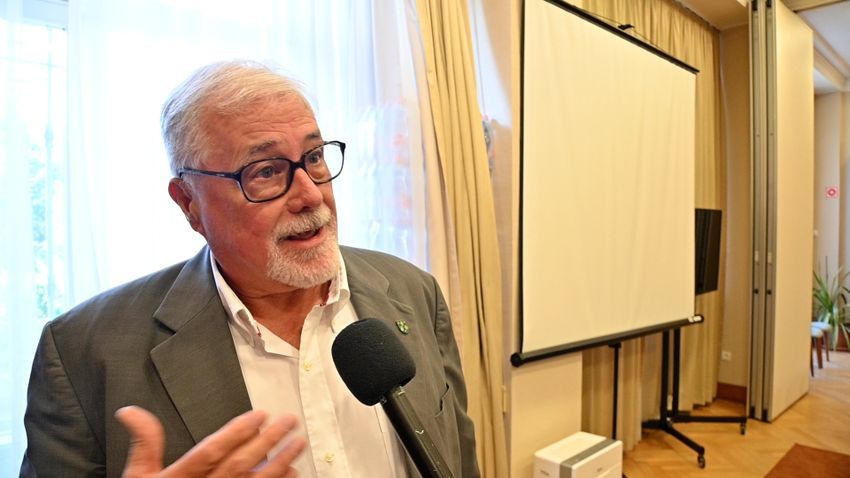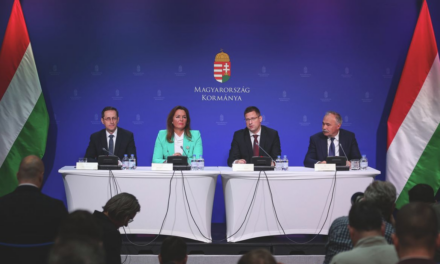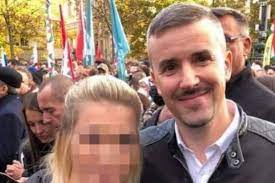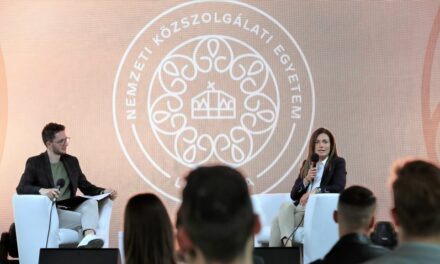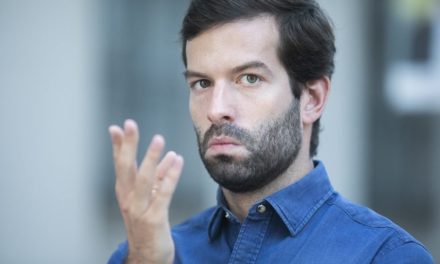Gergely Karácsony's financier, local council representative Gábor Perjés, revealed several details following the Hungarian Nation's questions about how, in his opinion, half a billion forints, mostly in foreign currency, were collected for the mayor's primary election campaign. In seven points, we examined whether Perjés' claims coincide with the facts, official and other information that have been made public so far. Here is the result!
A year ago, even those who lived in the capital II probably did not know who Gábor Perjés was. they voted for him in his district in 2019. Today, however, there is little need to introduce Perjés to the public, as he is one of the key players in the biggest domestic political scandal of the summer.
History
Gábor Perjés, who used to belong to Bajnai Gordon's circles, as the executive director of the 99 Movement marked by the name of Gergely Karácsony, paid more than half a billion forints between August 2021 and September 2022 - mostly in foreign currency - to the organization's account at OTP. According to the explanation of the Karácsonys, the unaccounted amount was collected from micro-donations, that is, the half a billion was collected little by little, anonymously, by many private individuals, by throwing the banknotes into the donation box. At the same time, the bank payments aroused suspicion, and the National Tax and Customs Office also launched an investigation: the authority first started investigating for budget fraud and later for money laundering. After seeing the information published in the press, the OTP ordered an internal investigation, as a result of which it came to serious conclusions, on the basis of which it filed a report on suspicion of falsification of private documents.
When the scandal broke out, Gábor Perjés promised to present the events later, and now, on the day of the current local government meeting, the staff of the Magyar Nemzet got him to speak. But do Perjés' answers coincide with the facts that have become known so far? We followed it.
1. Protocol
Gábor Perjés explained the origin of the money to our inquisitive questions: he got access to the donations by receiving them accompanied by minutes, which also contained the accounting data. However, he did not wish to name the persons who handled the collection boxes and handed over their contents to him.
The OTP was clear and unambiguous about the minutes in its report. "There is a suspicion that the content of the minutes sent by the 99 Movement Association to our bank - for the purpose of proof of source - does not correspond to reality, thus they deceived the bank in such a way that the actual, true source of the paid amounts was not indicated, it was not brought to the financial institution to his knowledge, as a result, the bank was not able to reliably verify the true source of the paid amounts."
2. Is the money foreign or domestic?
According to his statement, Perjés does not know whether the collection boxes were brought home from abroad or collected at home. In another answer, however, he indicated that the collection was carried out in Budapest and in the countryside, but he did not mention the collection abroad. The OTP was also clear on this issue: according to the minutes, "donations are basically collected from Hungarian persons living abroad for an approx. into a 30×30×30 cm donation collection box".
3. How big is the chest?
The size of the crate is also an important issue. To Magyar Nemzet's questions, Perjés said: if the authorities ask, he can present a donation collection box, but he did not show the box to our colleagues. As he said, he doesn't carry the big chest with him.
"Approx. 30×30×30 cm" size is far from large, the bank also came to this conclusion. As it turned out, two to three thousand banknotes, and in one case 3,811 (!) banknotes were pressed into the box, according to the Perjés records. According to the report, however, "packages of banknotes cannot be placed in the chest through the slot at the top, but at the same time it was established that the majority of the banknotes brought in - mainly euro banknotes - were new, wrinkle-free, in many cases consecutively numbered and stuck together (as if they had left the printing press and had not been used would have them)". According to the bank's point of view, the package-type placement physically precludes the placement of money in the boxes in question.
4. Titles
We also asked Perjés about the denominations. He confirmed that there were euros and British pounds in the chests, and he also hinted that it is legal to keep foreign money in this country, and many people do.
This is certainly true, except that - aside from the bank's report - the majority of the minutes contained only fifty and one hundred euro banknotes in addition to the HUF, and two minutes also contained the same number of one hundred euro banknotes. The English pound was included in a protocol, but only fifty denominations were registered. According to the current exchange rates of the central bank, fifty euros is worth twenty thousand forints, one hundred is obviously forty thousand, while fifty pounds is equivalent to 23 thousand forints. Therefore, the Hungarian donors of small amounts were thinking in terms of at least twenty thousand forints, not five hundred, two thousand or five thousand, or maybe five or ten euros. Paper money, yes, but no one among the supporters of the left seems to carry coins with them.
The OTP had half a billion reasons to denounce the Karácsony movement
5. Is OTP the bad guy?
According to the representative's claim, the bank did not see anything suspicious when the money was paid into OTP, as there were 19 such payments, and if there had been any irregularities, they would have told him the first time. He noted that the amounts paid were converted into forints, which he believes the bank must have earned.
The OTP filed a complaint because, as we have already mentioned, "the suspicion arises that the contents of the minutes do not correspond to reality, and thus the bank was deceived". In other words, something caught his eye at the financial institution.
6. When did they collect?
Let's stick with changing to forints. In this regard, Perjés explained that he settled incoming invoices from the HUF account as an executive. This is where the one about whom little has been said so far, but for whom all this happened, comes into the picture: Gergely Karácsony. The mayor announced in October 2021 that he would withdraw from the left-wing primaries, and Perjés kept the money in the bank for almost another year. The obviously poetic question arises: was there anyone who donated to Karácsony's campaign even after Karácsony withdrew months earlier? Moreover, not a little: more than HUF 450 million came to the association's account after the mayor gave it up. And what kind of expense is it that you fear will have to be paid a year after the campaign?
7. Is Gordon a champion? Yes!
Let's stick to the previous line of thought, that is, what the half a billion forints went to! Perjés now noted that there were a lot of expenses during the campaign: leaflets, posters, promotional products, the value of which was paid by bank transfer.
According to the OTP report, the payments corresponded to the amount of transfers addressed to one of the association's key partners immediately after the payment. And who could this partner be? The DatAdat group is certainly connected to the former left-wing Prime Minister Gordon Bajnai. We have to digress here enough to recall: after the 2022 parliamentary elections, the national security services not only revealed that huge sums of money had flowed from abroad to the Everyone's Hungary Movement marked by Péter Márki-Zay's name, but also revealed the financial movements of the 99 Movement. Based on an examination of the account turnover data of Bajnai's DatAdat Professional Kft., it was also revealed that the 99 Movement Association ordered services from the company worth a total of HUF 616.5 million. Ninety percent of the orders in question were realized after the withdrawal of Gergely Karácsony as a candidate for prime minister.
Investigation
Perjés' claims differ on several points from the information that has been made public so far. What follows from this is the task of the ongoing investigations to find out. In any case, the representative said that the authority has not contacted him yet.
Featured image: Máté Fazekas / MN

